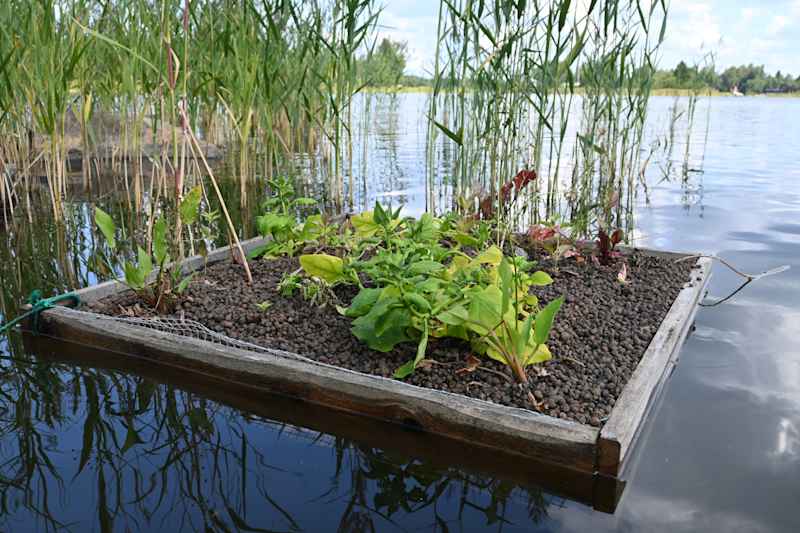Experiments have been carried out in Ostrobothnia to see whether floating cultivation could clean up eutrophic coastal waters

The project developed plastic-free growing media, on which the roots of the plants to be planted absorb nutrients from the water. At the same time, plants are produced for food or bioenergy.
In Ostrobothnia, research has been carried out into whether floating cultivation, i.e. growing plants on floating platforms in water, could be a solution to eutrophication of coastal waters.
The Floating Islands project between Vaasa University of Applied Sciences and Aktion Österbotten developed plastic-free growing platforms on which the roots of the plants to be planted absorb nutrients from the water. This helps to reduce eutrophication pollutants such as phosphorus and nitrogen.
At the same time, useful plants are produced for food or bioenergy.
\”However, we cannot completely say whether this effect has been due to the ferries,\” he recalls.
Now, further research is needed on how extensively the ferries purify nutrients.
Kekomäki considers research significant as new means are needed to reduce nutrient loads.
According to him, the experiment is known to be the first in Finland.
Salt water affects
Summer experiments in Ostrobothnia in Maalahti, Pietarsaari and Kristiinankaupunki showed that the platforms serve as very floating gardens.
They allow vegetables and wild vegetables to grow. In particular, the onion and cabbage adapted to it. However, salty water brought its own nuances to growth.
– Traditional vegetables do not grow as large as in a regular vegetable garden. They become speakers and salt folds, says Kekomäki.
According to him, the ferry can grow wild vegetables, for example. As the best plant, Kekomäki considers osman coil, which purifies water from nutrients and impurities and can be used as food and biomass, for example in handicraft.
Floating cultivation could be used in cities, agriculture and communities. Individuals can also build their own ferries.
